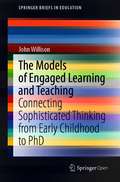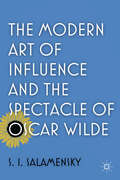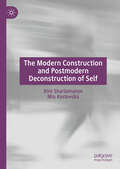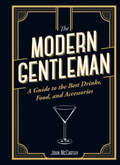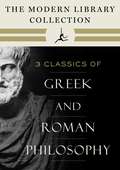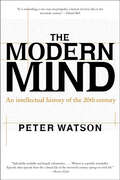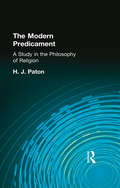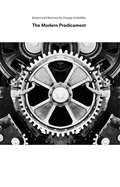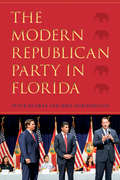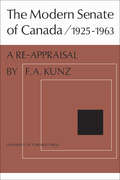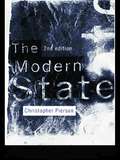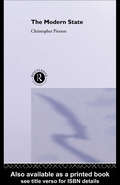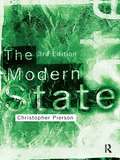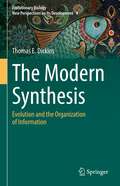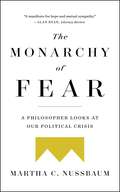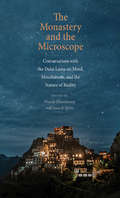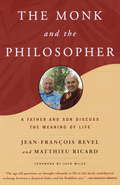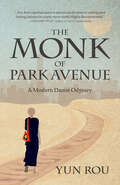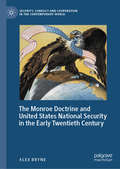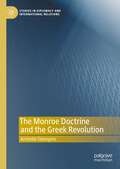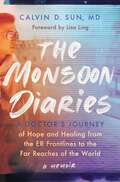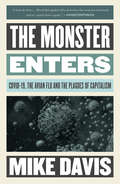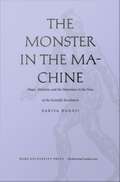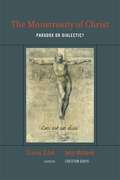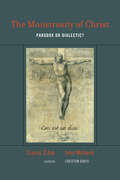- Table View
- List View
The Models of Engaged Learning and Teaching: Connecting Sophisticated Thinking from Early Childhood to PhD (SpringerBriefs in Education)
by John WillisonThis book provides a practical philosophy for promoting students' sophisticated thinking from Early Childhood to PhD in ways that explicitly interconnect across the years of education. It will help teachers, academics and the broader learning and teaching community to understand and implement these connections by introducing a conceptual framework, the Models of Engaged Learning and Teaching (MELT). By covering the nature, philosophy, practice and implications of MELT for teachers and students alike, the book will help teachers to facilitate students’ awareness of, and increasing responsibility for, the thinking demanded by subject and discipline-specific learning as well as interdisciplinary learning, whether face to face, online or in blended modes. The book will also provide educators with ways to effectively engage with complex, and sometimes conflicting, contemporary educational concepts, and with a diverse variety of colleagues involved in the learning and teaching enterprise.The book provides guidance that allows curriculum improvement, teacher action research and larger-scale research to be reported on from a common perspective, bridging the gap between those readers focused on research and those focused on teaching. The book shares valuable insights and ways of addressing the contemporary issue of discipline-based learning versus transdisciplinary learning, reducing the dichotomy and enabling the two approaches to complement each other.This is an Open Access book.
The Modern Art of Influence and the Spectacle of Oscar Wilde
by S. I. SalamenskySalamensky investigates Oscar Wilde, his contemporaries, and the public frenzy over his work and life as illustrating the crucial importance of performance in the construction of the 'modern' and our own, postmodern, lives.
The Modern Construction and Postmodern Deconstruction of Self
by Kire Sharlamanov Mia KostovskaThis book aims to explain the self as understood decades ago and its evolution in the time of postmodernism. Approaching it primarily from a sociological perspective, while incorporating insights from psychology and philosophy, it portrays the modern self as a unitary, coherent, unified subject created in the time of modernity, which during postmodernism has evolved into a fluid, decentralized, and fragmented subject with increasingly independent multiple identities. The creation of the modern self has been influenced by individualization, rationalization, and power. Each factor is explored in a separate chapter, detailing its impact on the development of the modern Cartesian self. The authors draw on the theories of Goffman, Bauman, and Baudrillard to illustrate the changing nature of the self, viewing it as a performer, a fluid entity, and a simulacrum. While Goffman is not strictly a postmodern author, his ideas foreshadow postmodernism, particularly regarding the transformation of the self. Bauman and Baudrillard, as key figures in postmodern thought, provide valuable insights into this transformation of the self in contemporary times. The book uniquely connects two time periods in which the self evolves, arguing that social factors influence its changing characteristics. As these social factors shift over time, so does the self. Key aspects of the self and its evolution are examined through an original, multidimensional approach that spans a longer time interval.
The Modern Gentleman: The Guide to the Best Food, Drinks, and Accessories
by John McCarthyThis compact volume introduces modern gentlemen to some of the greatest pleasures in life, from the very best spirits to the most complex hot sauces to the suavest of accessories. The book is targeted to aspiring bon vivants, modern metrosexuals, millennials, and hipsters eager to become the new gentleman. Content not only includes quick guides to great drinks, foods, and cigars, but also makes the case for why every real gentleman needs a great flask, a classic pen, and a watch that may not be &“smart&” but will make you look and feel like 007. Features short essays on each subject, with classic illustrations accompanying each, all in a handsome package that will evoke thoughts of a trusted old leather-bound book.
The Modern Library Collection of Greek and Roman Philosophy: 3-Book Bundle
by Plato Aristotle Marcus AureliusIn the long history of philosophy and literature, few have been so widely read and admired as the great thinkers of Greece and Rome. For modern audiences, this eBook bundle--which collects the Modern Library editions of three classics: Marcus Aurelius' Meditations, Selected Dialogues of Plato, and The Basic Works of Aristotle--is the perfect introduction to the foundation of modern knowledge. Accompanied by insightful, accessible commentary from some of today's top scholars, including Gregory Hays, Hayden Pelliccia, and C.D.C. Reeve, this is a collection of ideas that changed the world--and have truly stood the test of time. MEDITATIONS Marcus Aurelius succeeded his adoptive father as emperor of Rome in A.D. 161--and Meditations remains one of the greatest works of spiritual and ethical reflection ever written. The Meditations have become required reading for statesmen and philosophers alike, while generations of readers have responded to the straightforward intimacy of the leader's style. In Gregory Hays's seminal translation, Marcus's thoughts speak with a new immediacy: Never before have they been so directly and powerfully presented. SELECTED DIALOGUES OF PLATO In this volume, Hayden Pelliccia has revised five of Benjamin Jowett's translations of Plato--classics in their own right--to produce a fresh, modern take that Library Journal calls "a needed and welcome addition to the translations of the Dialogues." Here are Ion, Protagoras, Phaedrus, and the famous Symposium, which discuss poetry, the Socratic method, rhetoric, psychology, and love. Most dramatically, Apology puts Socrates' art of persuasion to the ultimate test--defending his own life. THE BASIC WORKS OF ARISTOTLE Preserved by Arabic mathematicians and canonized by Christian scholars, Aristotle's works have shaped Western thought, science, and religion for nearly two thousand years--and Richard McKeon's edition has long been considered the best available one-volume Aristotle. Here are selections from the Organon, On the Heavens, The Short Physical Treatises, Rhetoric, among others, and On the Soul, On Generation and Corruption, Physics, Metaphysics, Nicomachean Ethics, Politics, and Poetics in their entirety.
The Modern Mind: An Intellectual History of the 20th Century
by Peter Watson“Splendidly readable and hugely informative. . . . Episode after episode from the cultural life of the twentieth century springs to vivid life.” —Boston GlobeFrom Freud to Babbitt, from Animal Farm to Sartre to the Great Society, from the Theory of Relativity to counterculture to Kosovo, The Modern Mind is encyclopedic, covering the major writers, artists, scientists, and philosophers who produced the ideas by which we live. Peter Watson has produced a fluent and engaging narrative of the intellectual tradition of the twentieth century, and the men and women who created it.“Watson’s rich narrative covers every corner of intellectual life in the twentieth century.” —Publishers Weekly“Packed with a multitude of events, ideas, and influential people, Watson’s infectious writing carries the reader swiftly along. . . . This book will be read and consulted for many years.” —Library Journal “Enthralling, illuminating, and intellectually titillating.” —Booklist
The Modern Predicament: A Study in the Philosophy of Religion
by Paton, H JFirst published in 2002. Routledge is an imprint of Taylor & Francis, an informa company.
The Modern Predicament: Essays and Reviews
by George ScialabbaEssays and reviews concentrating on politics, economics, sociology and culture. With a forward by Barbara Ehrenreich. Most of the essays began as book reviews. As book reviews they were superior when published. As essays they are exceptional for their intelligence and clarity. George’s subjects are politics, religion and society. His subject is what people who are thinking ought to be paying attention to. The current cliché is that America has no public intellectuals. Every sentence George writes gives the lie to this bit of lazy journalese.
The Modern Republican Party in Florida
by Peter Dunbar Mike HaridopolosDespite Florida’s current reputation as a swing state, there was a time when its Republicans were the underdogs against a Democratic powerhouse. This book tells the story of how the Republican Party of Florida became the influential force it is today. Republicans briefly came to power in Florida after the Civil War but were called “carpetbaggers” and “scalawags” by residents who resented pro-Union leadership. They were so unpopular that they didn’t earn official party status in the state until 1928. Peter Dunbar and Mike Haridopolos show how, due largely to a population boom in the state and a schism in the Democratic Party, Republicans slowly started to see their ranks swell. This book chronicles the paths that led to a Republican majority in both the state Senate and House in the second half of the twentieth century and highlights successful campaigns of Florida Republicans for national positions. It explores the platforms and impact of Republican governors from Claude Kirk to Ron DeSantis. It also looks at how a robust two-party system opened up political opportunities for women and minorities and how Republicans affected pressing issues such as public education, environmental preservation, and criminal justice. As the Sunshine State enters its third decade under GOP control and partisan tensions continue to mount across the country, this book provides a timely history of the modern political era in Florida and a careful analysis of challenges the Republican Party faces in a state situated at the epicenter of the nation’s politics.
The Modern Senate of Canada 1925-1963
by Frank KunzThe role of the senate has changed much in recent years and—judging by the amount of recent public discussion on its role—might change even more in the future. This new study, the theoretical framework and theoretical discussion of which lift it out of the merely descriptive, contains a great deal of well-marshalled new material, from manuscript and ephemeral sources as well as from the printed Senate Debates Journals, and Reports of Committees. Little is generally known about the Senate, and of what little, much is erroneous. Professor Kunz's mass of detail and factual data, along with his evaluation of second chambers and of the performance of the Canadian Senate in particular, will do much to remedy this situation.
The Modern State
by Christopher PiersonThe modern state is hugely important in our everyday lives. It takes nearly half our income in taxes. It registers our births, marriages and deaths. It educates our children and pays our pensions. It has a unique power to compel, in some cases exercising the ultimate sanction of preserving life or ordering death. Yet most of us would struggle to say exactly what the state is.The Modern State offers a clear, comprehensive and provoking introduction to one of the most important phenomena of contemporary life. Topics covered include:* the nation state and its historical context* state and economy* state and societies* state and citizens* international relations* the future of the state
The Modern State
by Christopher PiersonThe modern state is hugely important in our everyday lives. It takes nearly half our income in taxes. It registers our births, marriages and deaths. It educates our children and pays our pensions. It has a unique power to compel, in some cases exercising the ultimate sanction of preserving life or ordering death. Yet most of us would struggle to say exactly what the state is.The Modern State offers a clear, comprehensive and provoking introduction to one of the most important phenomena of contemporary life. Topics covered include:* the nation state and its historical context* state and economy* state and societies* state and citizens* international relations* the future of the state
The Modern State
by Christopher PiersonThe new edition of this well-established and highly regarded textbook continues to provide the clearest and most comprehensive introduction to the modern state. It examines the state from its historical origins at the birth of modernity to its current jeopardized position in the globalized politics of the 21st Century. The book has been entirely revised and updated throughout, including substantial new material on the financial crisis and the environment. Subjects covered include: • The evolution of the state system • Placing the state in modernity• States and societies • State and economy • States and citizens • States and the international order • States of the twenty-first century This book is essential reading for all those studying the state, international relations and comparative politics.
The Modern Synthesis: Evolution and the Organization of Information (Evolutionary Biology – New Perspectives on Its Development #4)
by Thomas E. DickinsThis book is about evolutionary theory. It deals with aspects of its history to focus upon explanatory structures at work in the various forms of evolutionary theory - as such this is also a work of philosophy. Its focus lies on recent debates about the Modern Synthesis and what might be lacking in that synthesis. These claims have been most clearly made by those calling for an Extended Evolutionary Synthesis. The author argues that the difference between these two positions is the consequence of two things. First, whether evolution is a considered as solely a population level phenomenon or also a theory of form. Second, the use of information concepts. In this book Darwinian evolution is positioned as a general theory of evolution, a theory that gave evolution a technical meaning as the statistical outcome of variation, competition, and inheritance. The Modern Synthesis (MS) within biology, has a particular focus, a particular architecture to its explanations that renders it a special theory of evolution. After providing a history of Darwinian theory and the MS, recent claims and exhortations for an Extended Evolutionary Synthesis (EES) are examined that see the need for the inclusion of non-genetic modes of inheritance and also developmental processes. Much of this argument is based around claims that the MS adopts a particular view of information that has privileged the gene as an instructional unit in the emergence of form. The author analyses the uses of information and claims that neither side of the debate explicitly and formally deals with this concept. A more formal view of information is provided which challenges the EES claims about the role of genes in MS explanations of form whilst being consilient with their own interests in developmental biology. It is concluded that the MS implicitly assumed this formal view of information whilst using information terms in a colloquial manner. In the final chapter the idea that the MS is an informational theory that acts to corral more specific phenomenal accounts, is mooted. As such the book argues for a constrained pluralism within biology, where the MS describes those constraints.
The Monarchy of Fear: A Philosopher Looks at Our Political Crisis
by Martha C. NussbaumFrom one of the world&’s most celebrated moral philosophers comes a thorough examination of the current political crisis and recommendations for how to mend our divided country.For decades Martha C. Nussbaum has been an acclaimed scholar and humanist, earning dozens of honors for her books and essays. In The Monarchy of Fear she turns her attention to the current political crisis that has polarized American since the 2016 election. Although today&’s atmosphere is marked by partisanship, divisive rhetoric, and the inability of two halves of the country to communicate with one another, Nussbaum focuses on what so many pollsters and pundits have overlooked. She sees a simple truth at the heart of the problem: the political is always emotional. Globalization has produced feelings of powerlessness in millions of people in the West. That sense of powerlessness bubbles into resentment and blame. Blame of immigrants. Blame of Muslims. Blame of other races. Blame of cultural elites. While this politics of blame is exemplified by the election of Donald Trump and the vote for Brexit, Nussbaum argues it can be found on all sides of the political spectrum, left or right. Drawing on a mix of historical and contemporary examples, from classical Athens to the musical Hamilton, The Monarchy of Fear untangles this web of feelings and provides a roadmap of where to go next.
The Monastery and the Microscope: Conversations with the Dalai Lama on Mind, Mindfulness, and the Nature of Reality
by Wendy Hasenkamp Janna R. WhiteAn illuminating record of dialogues between the Dalai Lama and some of today’s most prominent scientists, philosophers, and contemplatives In 2013, during a historic six-day meeting at a Tibetan monastery in southern India, the Dalai Lama gathered with leading scientists, philosophers, and monks for in-depth discussions on the nature of reality, consciousness, and the human mind. This eye-opening book presents a record of those spirited and wide-ranging dialogues, featuring contributions from prominent scholars like Richard Davidson, Matthieu Ricard, Tania Singer, and Arthur Zajonc as they address such questions as: Does nature have a nature? Do you need a brain to be conscious? Can we change our minds and brains through meditation? Throughout, the contributors explore the exciting and sometimes surprising commonalities between Western scientific and Tibetan Buddhist methods of perceiving, investigating, and knowing. Part history, part state-of-the-field, part inspiration for the future, this book rigorously and accessibly explores what these two investigative traditions can teach each other, and what that can tell us about ourselves and the world.
The Monk and the Philosopher
by Matthieu Ricard Jean Francois RevelJean Francois-Revel, a pillar of French intellectual life in our time, became world famous for his challenges to both Communism and Christianity. Twenty-seven years ago, his son, Matthieu Ricard, gave up a promising career as a scientist to study Tibetan Buddhism -- not as a detached observer but by immersing himself in its practice under the guidance of its greatest living masters.Meeting in an inn overlooking Katmandu, these two profoundly thoughtful men explored the questions that have occupied humankind throughout its history. Does life have meaning? What is consciousness? Is man free? What is the value of scientific and material progress? Why is there suffering, war, and hatred? Their conversation is not merely abstract: they ask each other questions about ethics, rights, and responsibilities, about knowledge and belief, and they discuss frankly the differences in the way each has tried to make sense of his life.Utterly absorbing, inspiring, and accessible, this remarkable dialogue engages East with West, ideas with life, and science with the humanities, providing wisdom on how to enrich the way we live our lives.From the Hardcover edition.
The Monk of Park Avenue: A Modern Daoist Odyssey
by Yun RouPriceless Wisdom from a Modern Tao Te Ching Odyssey“...this book will completely absorb your attention from the beginning...” —Emanuele Pettener, PhD, assistant professor of Italian and writer in residence at Florida Atlantic University#1 New Release in Chinese Poetry, Asian Poetry, and Tao Te ChingA literary memoir like no other, Monk of Park Avenue recounts novelist and martial master Monk Yon Rou’s spiritual journey of self-discovery. Learn from Yon Rou as he tackles tragedy and redemption on an unforgettable soul-searching odyssey.A spiritual journey with extraordinary encounters. Yon Rou’s memoir is a kaleidoscopic ride through the upper echelons of New York Society and the nature-worshipping, sword-wielding world of East Asian religious and martial arts. Monk of Park Avenue divulges a privileged childhood in Manhattan, followed by the bitter rigors of kung fu in China and meditations in Daoist temples. Join Yon Rou’s adventure as he encounters kings, Nobel laureates, and the Mob. Witness this martial master’s incarceration in a high-mountain Ecuadorian hellhole and fight for survival in Paraguay’s brutal thorn jungle. Meet celebrities along the way. A story of love, loss, persistence, triumph, and mastery, The Monk of Park Avenue is peopled with the likes of Milos Forman, Richard Holbrooke, Paul McCartney, Warren Beatty and now-infamous opioid purveyors, the Sackler Family. Yun Rou’s memoir is no mere celebrity tell-all, but a novelist and martial master’s path to self-discovery.The Monk of Park Avenue offers you:Paths for personal and spiritual growthAnecdotal stories of self-discovery and insights into how to liveAn eloquent, candid exploration of spiritual transformationIf you loved Zen and the Art of Motorcycle Maintenance, To Shake the Sleeping Self, or Lao Tzu by Ursula K. Le Guin, you’ll love The Monk of Park Avenue. Also, be sure to read Monk Yon Rou’s Mad Monk Manifesto, winner of both the Gold & Silver 2018 Nautilus Book Award.
The Monroe Doctrine and United States National Security in the Early Twentieth Century (Security, Conflict and Cooperation in the Contemporary World)
by Alex BryneThis book demonstrates that during the early twentieth century, the Monroe Doctrine served the role of a national security framework that justified new directions in United States foreign relations when the nation emerged as one of the world’s leading imperial powers. As the United States’ overseas empire expanded in the wake of the Spanish-American War, the nation’s decision-makers engaged in a protracted debate over the meaning and application of the doctrine, aligning it to two antithetical core values simultaneously: regional hegemony in the Western Hemisphere on the one hand, and Pan-Americanism on the other. The doctrine’s fractured meaning reflected the divisions that existed among domestic perceptions of the nation’s new role on the world stage and directed the nation’s approach to key historical events such as the acquisition of the Philippines, the Mexican Revolution, the construction of the Panama Canal, the First World War, and the debate over the League of Nations.
The Monroe Doctrine and the Greek Revolution (Studies in Diplomacy and International Relations)
by Aristotle TziampirisThis book attempts to explain why despite widespread popular support (the “Greek Fire”) in the United States of America for the Greek Revolution, the promulgation in 1823 of the Monroe Doctrine led to Washington D.C.’s non-recognition of the Hellenic efforts. It examines the origins and tradition of the diplomatic doctrine of neutrality and argues that the Monroe Doctrine represents its full realization. The new foreign policy doctrine is placed within its proper diplomatic framework, while the role of Secretary of State John Quincy Adams is highlighted. What remains remarkable, is how high on the U.S. policy agenda the Greek War of Independence was and how close it came to being politically vindicated. The epilogue of this book demonstrates based on specific historical episodes, that the “Greek Fire” and the Monroe Doctrine set in many ways the political framework that came to define Hellenic-American relations for almost the next two centuries.
The Monsoon Diaries: A Doctor’s Journey of Hope and Healing from the ER Frontlines to the Far Reaches of the World
by Calvin D. Sun"There are heroes among us, and Dr. Calvin Sun is one of them. Read this book." -Lisa Ling, journalistThe Monsoon Diaries is the firsthand account of Dr. Calvin Sun, an emergency room doctor who worked tirelessly on the front lines in multiple hospitals during the COVID-19 pandemic.Drawing upon the lessons he learned from his adventures traveling to more than 190 countries in ten years, as well as from the grief he experienced as a teen when his father died, Dr. Sun shares his journey, from growing up as a young Asian American in New York to his calling first to medical school and then to the open road.He believes that the fight for a better world creates meaning when all feels meaningless, and he hopes that telling his story will help readers reframe this tragic moment in our lifetimes into possibility, with the goal of building a more empathetic society.
The Monster Enters: COVID-19, Avian Flu, and the Plagues of Capitalism
by Mike DavisA new edition of a classic book on viral catastrophes--the Spanish flu, the Avian flu, and now, Covid-19In his book, The Monster at Our Door, the renowned activist and author Mike Davis warned of a coming global threat of viral catastrophes. Now in this expanded edition of that 2005 book, Davis explains how the problems he warned of remain, and he sets the COVID-19 pandemic in the context of previous disastrous outbreaks, notably the 1918 influenza disaster that killed at least forty million people in three months and the Avian flu of a decade and a half ago.In language both accessible and authoritative, The Monster Enters surveys the scientific and political roots of today&’s viral apocalypse. In doing so it exposes the key roles of agribusiness and the fast-food industries, abetted by corrupt governments and a capitalist global system careening out of control, in creating the ecological pre-conditions for a plague that has brought much of human existence to a juddering halt.
The Monster in the Machine: Magic, Medicine, and the Marvelous in the Time of the Scientific Revolution
by Zakiya HanafiThe Monster in the Machine tracks the ways in which human beings were defined in contrast to supernatural and demonic creatures during the time of the Scientific Revolution. Zakiya Hanafi recreates scenes of Italian life and culture from the late sixteenth to the early eighteenth centuries to show how monsters were conceptualized at this particular locale and historical juncture--a period when the sacred was being supplanted by a secular, decidedly nonmagical way of looking at the world. Noting that the word "monster" is derived from the Latin for "omen" or "warning," Hanafi explores the monster's early identity as a portent or messenger from God. Although monsters have always been considered "whatever we are not," they gradually were tranformed into mechanical devices when new discoveries in science and medicine revealed the mechanical nature of the human body. In analyzing the historical literature of monstrosity, magic, and museum collections, Hanafi uses contemporary theory and the philosophy of technology to illuminate the timeless significance of the monster theme. She elaborates the association between women and the monstrous in medical literature and sheds new light on the work of Vico--particularly his notion of the conatus--by relating it to Vico's own health. By explicating obscure and fascinating texts from such disciplines as medicine and poetics, she invites the reader to the piazzas and pulpits of seventeenth-century Naples, where poets, courtiers, and Jesuit preachers used grotesque figures of speech to captivate audiences with their monstrous wit. Drawing from a variety of texts from medicine, moral philosophy, and poetics, Hanafi's guided tour through this baroque museum of ideas will interest readers in comparative literature, Italian literature, history of ideas, history of science, art history, poetics, women's studies, and philosophy.
The Monstrosity of Christ: Paradox or Dialectic?
by Slavoj Zizek John Milbank Creston DavisIf the theological was marginalized in the age of Western secular modernity, it has now returned with a vengeance. Theology is reconfiguring the very makeup of the humanities in general, with disciplines like philosophy, political science, literature, history, psychoanalysis, and critical theory, in particular, feeling the impact of this return.
The Monstrosity of Christ: Paradox or Dialectic? (Short Circuits)
by Slavoj Zizek John MilbankA militant Marxist atheist and a “Radical Orthodox” Christian theologian square off on everything from the meaning of theology and Christ to the war machine of corporate mafia. In this corner, philosopher Slavoj Žižek, a militant atheist who represents the critical-materialist stance against religion's illusions; in the other corner, “Radical Orthodox” theologian John Milbank, an influential and provocative thinker who argues that theology is the only foundation upon which knowledge, politics, and ethics can stand. In The Monstrosity of Christ, Žižek and Milbank go head to head for three rounds, employing an impressive arsenal of moves to advance their positions and press their respective advantages. By the closing bell, they have not only proven themselves worthy adversaries, they have shown that faith and reason are not simply and intractably opposed. Žižek has long been interested in the emancipatory potential offered by Christian theology. And Milbank, seeing global capitalism as the new century's greatest ethical challenge, has pushed his own ontology in more political and materialist directions. Their debate in The Monstrosity of Christ concerns the future of religion, secularity, and political hope in light of a monsterful event—God becoming human. For the first time since Žižek's turn toward theology, we have a true debate between an atheist and a theologian about the very meaning of theology, Christ, the Church, the Holy Ghost, Universality, and the foundations of logic. The result goes far beyond the popularized atheist/theist point/counterpoint of recent books by Christopher Hitchens, Richard Dawkins, and others. Žižek begins, and Milbank answers, countering dialectics with “paradox.” The debate centers on the nature of and relation between paradox and parallax, between analogy and dialectics, between transcendent glory and liberation. Slavoj Žižek is a philosopher and cultural critic. He has published over thirty books, including Looking Awry, The Puppet and the Dwarf, and The Parallax View (these three published by the MIT Press). John Milbank is an influential Christian theologian and the author of Theology and Social Theory: Beyond Secular Reason and other books. Creston Davis, who conceived of this encounter, studied under both Žižek and Milbank.
